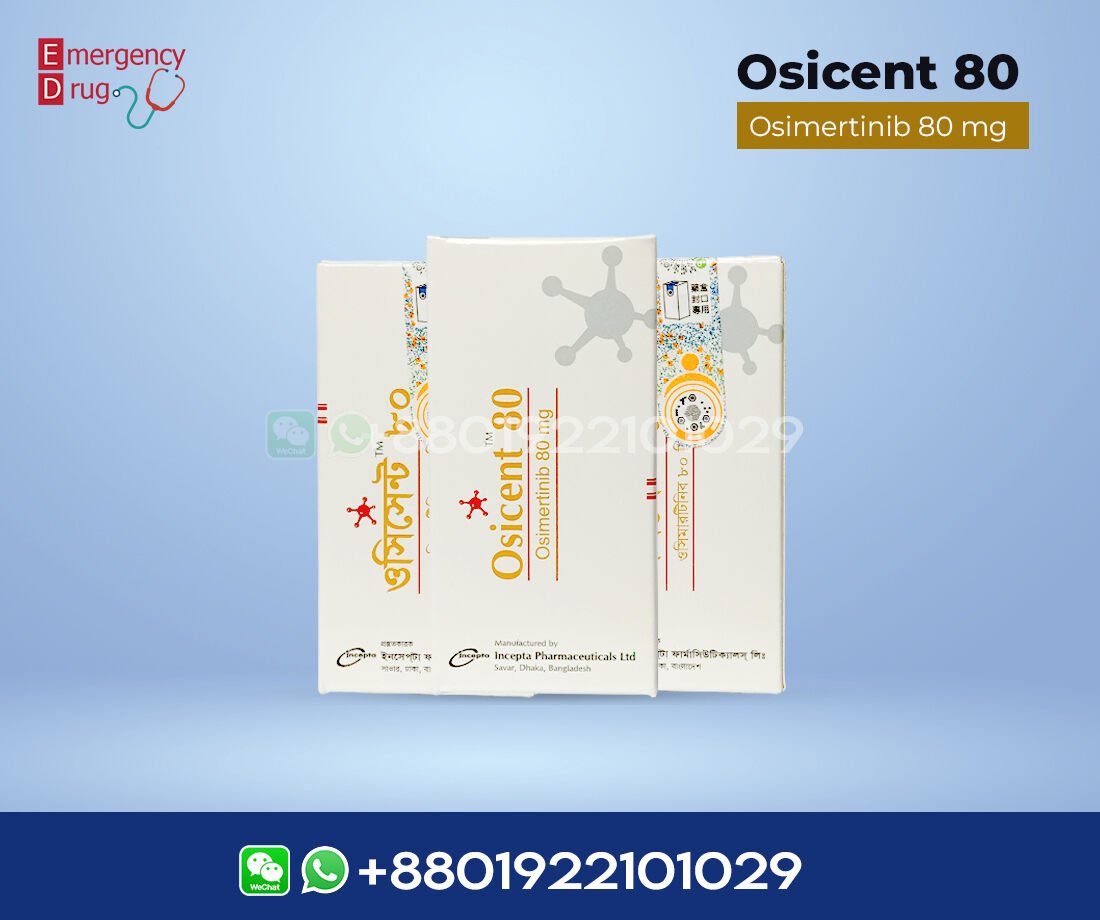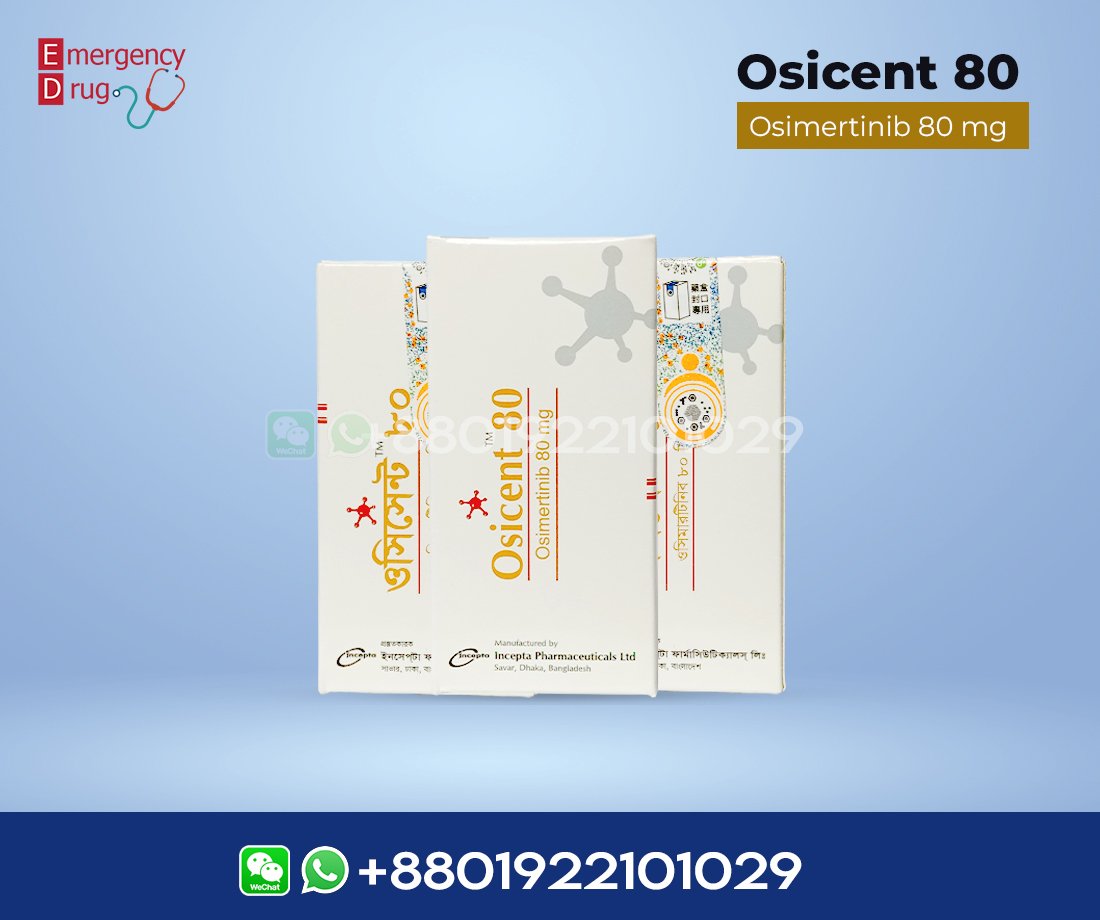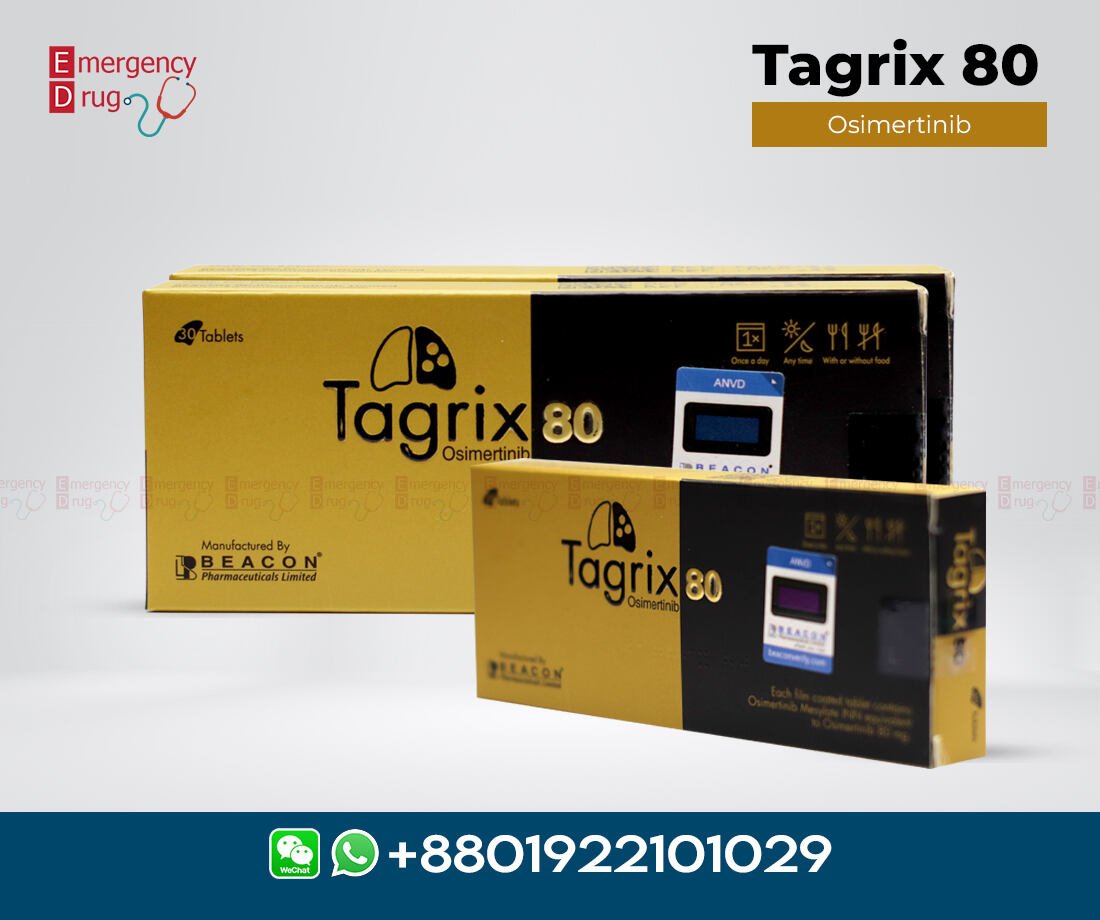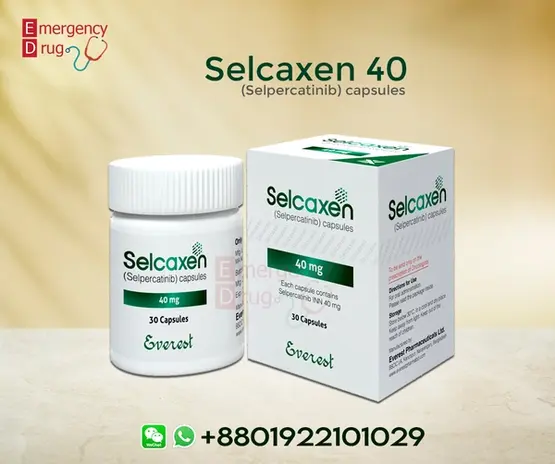Description
Osicent 80 mg, which is the brand name for osimertinib—a third-generation epidermal growth factor receptor (EGFR) tyrosine kinase inhibitor (TKI).
Product Features:
| Product Name | : Osicent |
| Generic Name | : Osimertinib |
| Manufacturer | : Incepta Pharma Ltd |
| Indication | : non-small cell lung cancer |
| Formulation | : Tablet |
| Strength | : 80 mg |
| Quantity | : 30 Tablets |
| Storage | : Room temperature |
| Registrations | : Export Only |
Osicent 80 mg price in USA / UK / UAE / Saudi Arabia / Qatar / Bahrain / Kuwait / Egypt / Australia / Newzealand / Ireland / Yemen / Russia : $110.00
Osicent 80 mg (Osimertinib) is a potent kinase inhibitor targeting the epidermal growth factor receptor (EGFR). This groundbreaking medication offers hope for patients battling metastatic non-small cell lung cancer (NSCLC) with specific EGFR mutations, as it has shown remarkable efficacy in clinical studies. In this article, we’ll explore its indications, potential side effects, and crucial drug interactions.
Indication
Osicent 80 mg indicate for the treatment of patients with metastatic NSCLC who have tested positive for the T790M mutation of the EGFR gene. This indication is specifically for individuals who have experienced disease progression after prior treatment with EGFR tyrosine kinase inhibitors. FDA-approved testing is essential to identify eligible patients.
Side Effects of Osicent 80mg
While Osicent 80 mg (Osimertinib ) offers promising therapeutic benefits, it’s important to be aware of potential side effects. The most common adverse reactions observed in patients receiving Osimertinib 80 mg include diarrhea (42%), rash (41%), dry skin (31%), and nail toxicity (25%). It’s worth noting that some adverse reactions may lead to dose reductions or interruptions.
Electrocardiogram QTc prolongation (2.2%) and neutropenia (1.9%) are examples of such reactions. Additionally, serious adverse events reported in 2% or more of patients include pneumonia and pulmonary embolus.
Interstitial Lung Disease (ILD)/Pneumonitis
ILD/Pneumonitis is a rare but serious side effect, occurring in approximately 3.3% of patients taking Osimertinib. If diagnosed with ILD/Pneumonitis, treatment with Osimertinib should be permanently discontinued.
QTc Interval Prolongation
Patients with a history or predisposition for QTc prolongation, or those taking medications known to extend QTc intervals, should have their electrocardiograms and electrolytes closely monitored while on Osicent 80. Depending on the situation, treatment may need to be temporarily withheld and resumed at a reduced dose or permanently discontinued.
Cardiomyopathy
Cardiomyopathy occurred in 1.4% of patients taking Osimertinib 80 mg. Therefore, it is recommended to assess left ventricular ejection fraction (LVEF) before starting Osimertinib (Osicent 80 mg) treatment. Then monitor it every 3 months thereafter.
Drug Interactions
To ensure the safety and efficacy of Osimertinib 80 mg treatment, it’s essential to be cautious about potential drug interactions.
Strong CYP3A Inhibitors: Osimertinib should not be co-administered with strong CYP3A inhibitors, such as macrolide antibiotics (e.g., telithromycin), antifungals (e.g., itraconazole), antivirals (e.g., ritonavir), and nefazodone. The use of strong CYP3A inhibitors may increase Osimertinib plasma concentrations, necessitating closer monitoring for adverse reactions.
Strong CYP3A Inducers: Conversely, the concurrent use of Osimertinib with strong CYP3A (inducers like phenytoin, rifampicin, carbamazepine, and St. John’s Wort) should be avoided, as these inducers may reduce Osimertinib plasma concentrations.
Summary Table:
| Category | Details |
|---|---|
| Drug | Osimertinib (Osicent 80 mg) |
| Use | EGFR-mutated NSCLC (first-line or T790M-positive post-TKI progression) |
| Dose | 80 mg once daily, orally |
| Administration | With/without food; tablet may be dispersed for difficult swallowing |
| Common AEs | Rash, diarrhea, dry skin, nail changes, fatigue, nausea |
| Serious AEs | ILD/pneumonitis, QTc prolongation, cardiomyopathy, vision/liver issues |
| Interactions | CYP3A4 inhibitors/inducers—caution required |
| Special Notes | Targeted therapy with CNS penetration and improved survival outcomes |
Conclusion
Osimertinib (Osicent 80 mg) represents a significant advancement in the treatment of metastatic EGFR-mutated non-small cell lung cancer (NSCLC). While it offers promising therapeutic benefits, healthcare providers and patients must be vigilant about potential side effects and drug interactions. By adhering to safety guidelines and closely monitoring patients, we can maximize the benefits of this innovative medication in the fight against NSCLC.
Why Buy from Us :
- 100% genuine pharma
- Licensed exporter
- Discreet packaging
- Customer support
Important Note: This information is for general knowledge only. Please talk to a doctor for any health concerns or medical advice.
For more related medicine, visit our shop.
Osicent 80Mg Tablet (Osimertinib) | Emergency Drug

Osicent 80 mg (Osimertinib) is used to treat patients with a specific type of (NSCLC) called metastatic epidermal growth factor receptor. Price - $110
Product Brand: Osicent 80 Mg
Product Currency: USD
Product Price: 110.00
Product In-Stock: InStock
5













Reviews
There are no reviews yet.